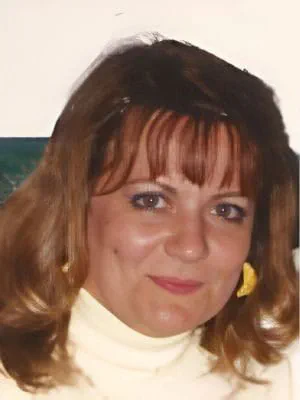For people affected by cancer, the average lifetime cost is projected to be nearly $33,000. Out-of-pocket costs are expected to make up most of this number, with the cost of cancer care only expected to increase in the next 10 years.
A new survey by the Canadian Cancer Society reveals that nearly 80% of working-age Canadians (age 18-64) worry they would struggle to save for retirement if faced with a cancer diagnosis because of the high out-of-pocket costs.
People experience the economic impact of cancer in Canada in many different and difficult ways. This is why the Canadian Cancer Society (CCS) advocates for a future with less financial hardship and more affordable access to cancer care.
Steven Hodges, Kayla Ouellette and Sharon Dennis are 3 Canadians who have shared their experiences of out-of-pocket costs during and after cancer.
Steven's story
When Steven Hodges was diagnosed with throat and mouth cancer, it was already at stage 4. Because Steven had been on painkillers for a surgery after breaking his arm, he didn’t feel anything out of the ordinary. He’d only later noticed a small bump under his ear and learned that he had tumours on the roof of his mouth, tongue, tonsils and lymph nodes.
Self-employed, Steven couldn’t afford disability insurance and his wife’s health insurance plan was not enough to fully cover the cost of medication.
As he went through radiation and chemotherapy, Steven had to continue working. He took meetings with clients while hiding chemo ports and tubes on his body and wore makeup to hide his pale complexion.
As a father to a young child, Steven had to balance treatments, work, recovery and caring for his family.
Steven lost 2 years of steady income because of his cancer diagnosis, and he drained his savings to keep his family afloat.
Expenses reached more than $33,000 and he had to take out a second mortgage on his house and use the money saved for his retirement.
“I knew I had hit rock bottom when it was going to be stressful for me to come up with $100. I was just scraping by,” Steven shared.
The treatment’s side effects left Steven unable to drive himself to his appointments. He then turned to Wheels of Hope, the Canadian Cancer Society’s transportation program that provides support and helps people with the added expense of travelling.
7 years after finishing cancer treatment, Steven decided to become a volunteer Wheels of Hope driver himself. He can provide support to people who are dealing with their own cancer experiences.
Although Steven is now cancer-free, he still deals with the physical and financial impact of cancer a decade later.
I’m not at my 100 percent potential. People need to understand that once they give you the diagnosis of cancer-free, it doesn’t mean that you can shake it off and it’s finished. There are leftover ramifications for many people. Their lives are forever changed.

Kayla's story
In 2023, Kayla Ouellette found a lump on her neck and started having a difficult time swallowing. Shortly after, she was diagnosed with anaplastic thyroid carcinoma, a rare type of thyroid cancer.
Kayla had previously taken some time off to care for her 2 small children and had only been working at her new job for 2 weeks when she found the lump. This meant that she was not eligible for the EI sickness benefit.
Living in a rural community in New Brunswick, Kayla learned that she would need to travel almost 3 hours away to begin daily radiation therapy in Saint John.
“If they had more cancer clinics around my area, that would be much more ideal instead of travelling several hours away every time,” Kayla shared.
The hardest part for Kayla was having to leave her kids for 6 weeks while she was getting radiation. Being alone and far away from home during treatment took a toll her on mental health. Between gas, other out-of-pocket expenses and being unable to work, Kayla also worried about how she would afford all the travel.
It was the same thing every day: would I have enough money? […] “I really, really needed help. I was financially stuck.
Fortunately, Kayla learned about the CCS Travel Treatment Fund. This allowed her to get reimbursed for a lot of the expenses that came with receiving treatment.
“Without CCS, I don't believe I would have been able to go back and forth from home to the hospital.” she said.
Kayla believes more local cancer treatment centres would help ease some of this financial burden on people that live in rural and remote communities.
And although she has been cancer-free since 2024, Kayla still deals with out-of-pocket costs.
“My medication after treatment was not covered. It was completely out of pocket. It still costs me $30 per month because most health insurance companies won’t cover me now,” she said.
Until I met my new partner, Cyle, the only financial help I had was from the Canadian Cancer Society. I'm still appreciative of what CCS has done because they didn't need to, but they wanted to. I was super thankful.

Sharon's story
In 2001, after experiencing severe chest pains, Sharon Dennis was diagnosed with Chronic Myeloid Leukemia (CML), a rare form of blood cancer.
Sharon learned that she’d need to drive almost an hour for daily chemotherapy treatments. Fortunately, she had the option of using take-home cancer medication instead. While undergoing treatment at home may seem like an easier alternative for people like Sharon who require long-term treatment, accessing take-home cancer drugs can be challenging and costly.
Although the Exceptional Access Program (EAP) granted Sharon coverage through the Ontario Drug Benefit Program, a more effective drug became available during her treatment. However, when Sharon took the new prescription to the pharmacy, they told her that she wasn’t covered and that it would cost her $5,000 to fill her prescription.
I don’t have that kind of disposable income so being denied a ticket to health seemed like an unfair situation.
Sharon went through a long and frustrating process to get her medication. To sort out the payment between the pharmacy and drug company, Sharon had to mail forms which caused a weeks-long delay – too long for someone who depends on life-saving medication.
Sharon later found out that the pharmacy couldn’t even supply the amount of the drug she needed. She ended up repeating the whole process with another pharmacy an hour away from her home.
All the delays resulted in Sharon not having any medication for over 3 months.
I’ve spent more time and energy than anyone should have to endure to get life-saving medication under the current system. I’m dealing with a hard-to-treat cancer and the time-consuming paperwork, and month-long delays have been my biggest challenge.
With the cost of medication, mailing fees, insurance, gas, car maintenance and food, Sharon was left broke.
Sharon still has leukemia today and relies on take-home cancer drugs as her primary treatment. She doesn’t want anyone else to experience the same challenges she’s faced and now shares her story to support the Canadian Cancer Society’s advocacy efforts.
“I’m just going to keep doing whatever I can to improve the cancer experience for others,” Sharon said. “I am hopeful that change will be made at some point in the future.”

You can help reduce the cost of cancer care in Canada
February 4 marks World Cancer Day, a global call for support to raise awareness and take personal, collective and government action to save lives and make sure cancer care is equitable to all.
For countless people in Canada, the rising out-of-pocket costs – from lab fees and medications to gas money and hospital trips – are piling up at the worst possible time, when earning an income may not even be an option.
CCS is advocating for measures to lighten the financial impact on people living with cancer and their caregivers, so they can focus on getting well. These measures, targeted at all levels of government, include making the Canada Caregiver Credit refundable, lowering the cost of out-of-pocket expenses, including cancer drug costs, and implementing guaranteed job security.
You can help. Sign our petition to reduce the cost of cancer care in Canada.
